This year my friend Kelly Grace Thomas and I inaugurated and releasaed the first season our podcast The Poetry Saloncast, where we interview accomplished, established poets. Whereas many podcasts focus on the writer’s work, we wanted to look more closely at the writing process itself – how they generate ideas, and specifically how they rewrite poems – as I put it, “how to play rough with a rough draft.” Why do some poems come so easily, while others won’t seem to behave no matter how much we beg and coax? In our first season we interviewed Alexis Rhone Fancher, Hannah Gamble, Brendan Constantine, Jeanine Hall Gaily, and Douglas Manuel, as well as featuring get-to-know-you episodes on our trio of Poetry Salon instructors Arminé Iknadossian, Kelly and myself. The following are some of the techniques they use to tame the poetic muse…
-
Keep a notebook of ideas
Douglas Manuel notes that there are many different stages of writing a poem. There’s the part we all think of – the writing, rewriting, editing and publishing, but there’s also that moment during our day when we stumble across topics, feelings or ideas that spark the raw material for our writing. It’s often not convenient to sit down and write on the spot, so many poets keep a journal where they write down inspiration on the fly. Their journal then gives them a ready jumping off point at the start of writing time. Doug, for example, says he saw jasmine in downtown Long Beach and it reminded him of his childhood home in Indiana. With a quick note in his journal, he later wrote for 15 solid minutes about the jasmine and the memory it stoked.
-
Read the news
On a similar vein, Arminé Iknadossian says she actively looks for inspiration, not just in her own life, but in newspapers or scrolling through stories on social media sites. She says that she reads and reads, scrolls and scrolls, looking for tales that need to be told like a battlefield nurse surveying the wounded for the neediest cases. Rather than being “practical minded” she calls this being “poetry minded.”
-
Start with an image and trust it will lead somewhere
Pulling from my own interview, I talked about starting my writing session by describing an image with poetic language. I don’t necessarily know where I’m going – if anywhere, but most of the time, I’m following an inner sense of desire or curiosity. For example, I’ll spy a bird flying over the city that looks like it might be a swan. I’ll use similes and metaphors both to describe the bird and capture my own experience observing it. I’ll invent a reason the bird happens to be there. Often if I give time and attention to this sort of exercise, a poem will emerge.
-
Try an anaphora poem
Hannah Gamble says that when reading Christopher Smart’s poem, “For I Shall Consider my Cat Geoffrey,” she “got stoned on his language.” She wanted to write an anaphora poem like his, so she just kept starting new lines with the word “for” and then letting her mind say whatever it wanted to. By doing this over and over and over, Hannah filled six full pages with her anaphora poem, many parts of which were included in her first book, Invitation to a Modest Breakfast. She also suggested removing the repeating phrase to see what of value remains. When you know what the beginning word of every line is, you can trick your brain into thinking the whole poem is taken care of and cast your line in an infinite number of directions.
-
Get it wrong
“In a way,” Brendan Constantine shared, “Art is …where we’re supposed to go and get it wrong. It’s people responding to being alive. It’s mortal self-consciousness addressing everything that is not itself. . .That does to some extent require barging into a room totally uninformed and saying things and painting things and drawing things and taking huge risks and making big mistakes.” So, he advises his students to pick a subject that holds mystery for them – whether it’s something traditional and immutable like the moon, or a modern topic like “how the remote control works” – and write what they THINK about it. What could it be? What caused it? What made it? Don’t be afraid to completely miss the point and fly outside the margins.
-
Write from the persona of the villain
Villains are characters who are often denied a voice, misunderstood or misrepresented. Jeanine Hall Gaily, who wrote “In Becoming the Villainess”, suggests writing or rewriting a story from their perspective. Gailey submits that fully half of all poems are written in the voices of not good people, straight up bad guys. “I grew up as a Girl-Scout; I taught Sunday school in the Midwest. I had a very repressed childhood, so it was fun to grow up and write the opposite of that: bad women, having fun, being bad.”
-
Write about a taboo subject
You are never going to fail for ideas with this exercise by Alexis Rhone Fancher. She relates that people at readings often thank her for having the courage to write about topics or experiences they’ve been too embarrassed to approach themselves. To open up taboos, Fancher says, is to bring light into a dark place of secrecy and consequently, to inspire others to do the same.
-
Walk… Write… Repeat
Kelly Grace Thomas says that among the best ways to generate poetry is to absorb lots of great writing, then walk at the beach, in the forest, up a mountain, through a city, or down to the local post-office. You can even try other forms of movement like dancing or cleaning the house. Then sit down and watch the writing flow like water. It’s the combination of getting inspired by poems and moving your body that gets the creativity at its most productive. (Want a good poem to start with? Try this one by Billy Collins, who describes a similar process in “Advice to Writers.”)
-
Make friends with other writers!
Share ideas, inspiration, and good poetry with some brilliant colleagues! Alexis Rhone Fancher says, “Communication between poets, whether it’s being in contact with each other, editing each other, promoting each other, is essential… I think it’s just a love of people. I just want to be around poets who are better than me. I want to reach. I want them to reach down and say, ‘here, let me help you up.’ Then you have a responsibility to do the same.”
-
WRITE!
There is no one way to write a poem. Some poets, like Alexis Rhone Fancher, wake up early every day and write for four hours in a specific place. Others, like Brendan Constantine, write in break rooms, between classes, or when and wherever they find the time. Kelly Grace Thomas admits she sometimes writes at red lights, because she is a bold poet, but not necessarily a good driver. Whatever your lifestyle at the moment, you can sneak writing in, even as little as 15 minutes a day. You don’t need to wait for the write time. Just write. Whenever or wherever you can. You can!
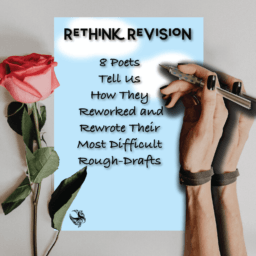

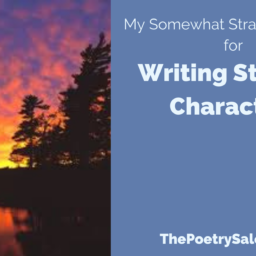
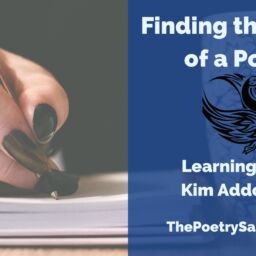
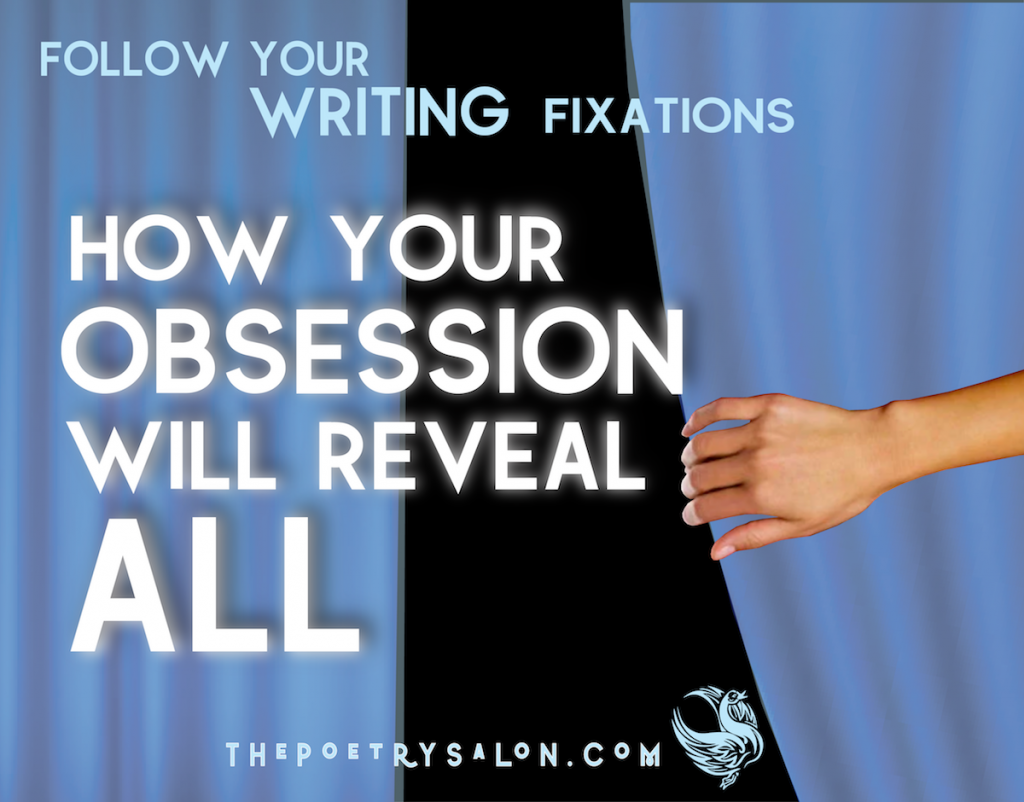
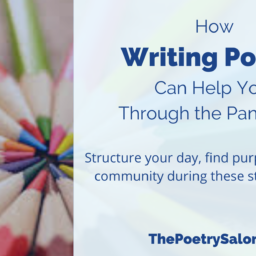
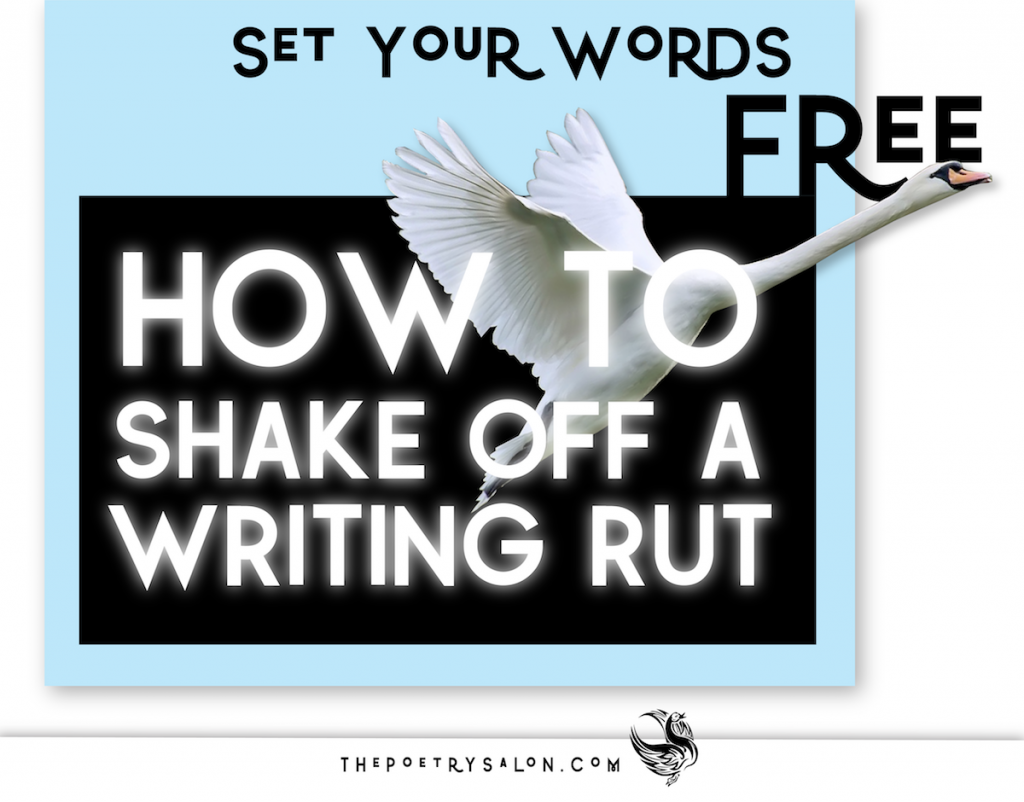





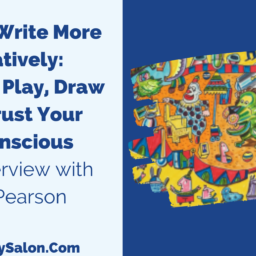
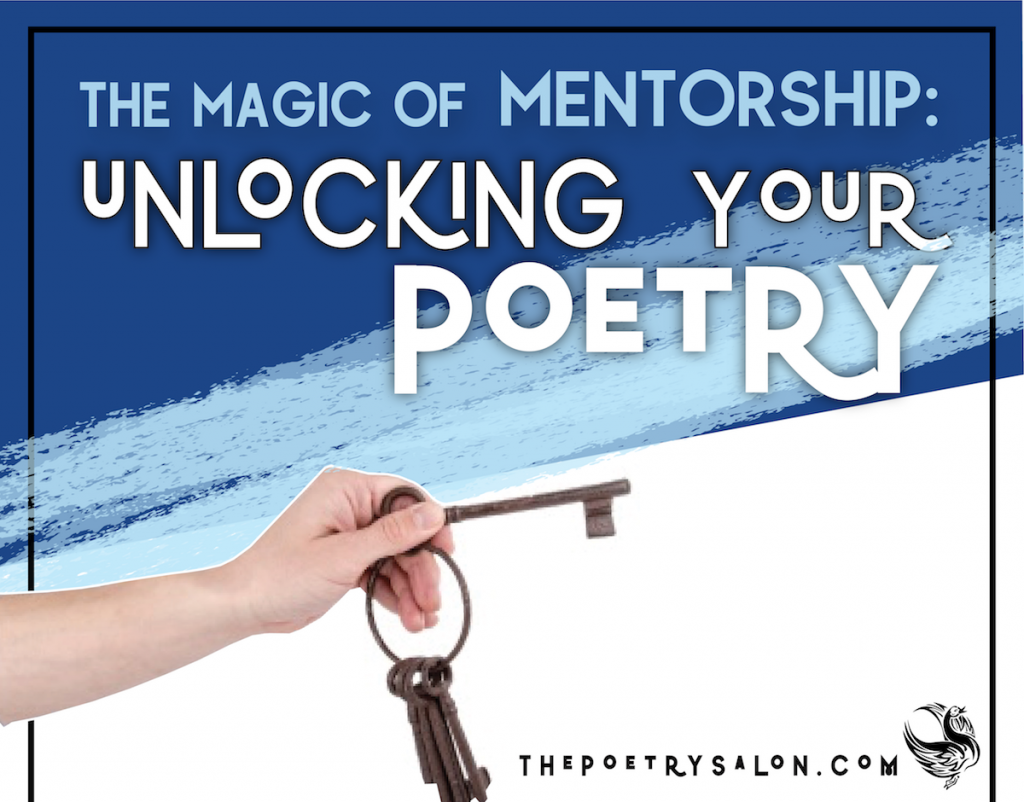
Thanks again to everyone who contributed their thoughts to this article. You help hold us all up and shine a light the way forward!